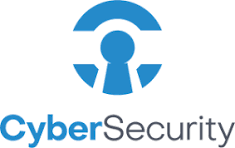
Introduction to Cyber Security
This course offers a foundational understanding of cybersecurity principles and practices. It covers essential topics such as cryptography, network security, threat identification, risk management, and incident response. Through theoretical knowledge and practical applications, students will learn how to protect information and information systems from various cyber threats. The course is designed to equip students with the skills necessary to pursue further studies or careers in the cybersecurity field.
Overview

Introduction to Cyber Security
Course Learning Outcomes (CLOs) and SLOs
Course Learning Outcomes (CLOs) typically include:
Student Learning Outcomes (SLOs) are specific goals for students, such as:

Benefits
With AI, the world is your oyster! It is an emerging field, rapidly growing, ever evolving and watched with a keen eye by industries and markets globally. There are many benefits to an education in AI:
In demand Career
With a Bachelor in artificial intelligence you are equipped with in-demand skills in the rapidly growing field of AI. Knowledge of developing AI systems, data analysis and AI techniques makes you valuable across industries, right from healthcare, finance, tech and more. This degree prepares you for career that has multiple options for diversification. AI professionals include AI engineers, data scientists, machine learning specialists, AI consultants, researchers and more. AI is transformative technology that is revolutionising the world. With an education background in AI, you are set up in an in-demand career field with an exciting future ahead!
Innovation and advancement
Applied AI is all about finding solutions and using AI systems to make life simpler. Applied AI draws on its solid foundation in Computer Science to analyse and provide solutions for real world challenges. You are prepared to address complex problems and contribute meaningfully in domains like healthcare diagnostics, fraud detection, autonomous vehicles, personalised recommendations and more. Being able to apply AI techniques for solving tasks makes for an extremely rewarding and impactful job role!
Solving real world problems
AI aims to constantly bridge the gap between natural intelligence and machine learning - it is a field of cutting edge research, innovation and advancing technology. This makes it ever evolving, with new algorithms, models and techniques being developed. By studying AI at an undergraduate level, you gain a strong foundation in AI fundamentals that help you better understand the latest advancements. You step into a career that empowers you to push the boundaries of AI, contribute to research and development and drive innovation in the field.
100% International
Study at your own pace from anywhere in the world
Recommended by 96% of our graduates
According to our latest alumni survey
50,000+ students
enrolled in Germany’s largest university
Study contents
Contents
Module 1: Fundamentals of Cyber Security
Module 4: Application Security
Module 5: Cryptography and Encryption
Module 6: Incident Response and Disaster Recovery
Module 7: Compliance and Governance
Module 8: Threats and Countermeasures
Module 9: Penetration Testing and Vulnerability Management
Module 10: Cyber Security Governance and Risk Management
Admission
Admissions Criteria
Careers
Start your career now
Cyber Security Analyst:
You can work as a junior Cyber Security Analyst, helping organizations detect and respond to security threats, configuring firewalls, and monitoring network traffic.
Incident Responder:
Your skills can be applied as an Incident Responder, focusing on responding to and containing security breaches, performing post-incident activities, and improving incident response processes.
Network Administrator:
With your knowledge of Cyber Security basics, you can work as a Network Administrator, ensuring the security of computer networks, configuring network devices, and troubleshooting issues.
Student reviews
Coming Soon.
Tuition fees
All our study programmes include the following benefits
- Teaching and study material
- Marking of your end-of-module exams
- Monthly live and recorded tutorials
- Use of the online campus
- Individual study coaching
- Online exams
- Career coaching
- Learn English for free
Our global recognition

IU is recognised by WES Canada and U.S., which means your degree can be converted to points in the local system for purposes of immigration, work, or studies.

As the first EU institution in UNESCO's Global Education Coalition, IU is committed to ensuring accessible quality education to students in crisis worldwide through free online micro-credentials.
Our company partners

For over 20 years, IU has established partnerships with leading global companies. This offers you the chance to gain firsthand experience through internships and projects and allow us to adapt our learning content to the ever-evolving needs of the labour market. You'll benefit from an education designed to bridge the gap between theory and real-world practice, ensuring your readiness for your future career.
Recognition
Recognition of previous achievements
Have you already completed a training course, studied at a university or gained work experience? Have you completed a course or a learning path through EPIBM LinkedIn Learning, and earned a certificate? Then you have the opportunity to get your previous achievements recognised, and complete your studies at EPIBM sooner.

Save time:
Skip individual modules or whole semesters!
Even before you apply for a study programme, we’ll gladly check whether we can take your previous achievements into account: 100% online, no strings attached. Simply fill in our recognition application form, which you can find under the content section of each study programme's webpage, and upload it via our upload section. You can also e-mail it to us, or send it via post.
Send an email to [email protected] to find out which previous achievements you can get recognised. You can get your previous achievements recognised during your studies.
Recognition files
Autonomous vehicles developer
With AI, the world is your oyster! It is an emerging field, rapidly growing, ever evolving and watched with a keen eye by industries and markets globally. There are many benefits to an education in AI:
That’s why after graduating, you’ll be able to apply your professional skills and knowledge, and work for development teams at any sector you find appealing.


Augmented reality (AR/VR) developer
Virtual (or augmented) reality isn’t all just fun and games, as great and enjoyable as that aspect is. It can also be used for groundbreaking social and psychological research, defensive purposes and therapy.
With an Applied Artificial Intelligence degree from IU University of Applied Sciences, you can take part in this vital field of technological development, and work on a wide variety of interesting projects.
Change what the world thinks about the possibilities that AI offers, and make a real difference in people’s lives, while enjoying every step of the process.
F.A.Q
Frequently Asked Questions
You might also be interested in these study programmes
Accredited and certified













